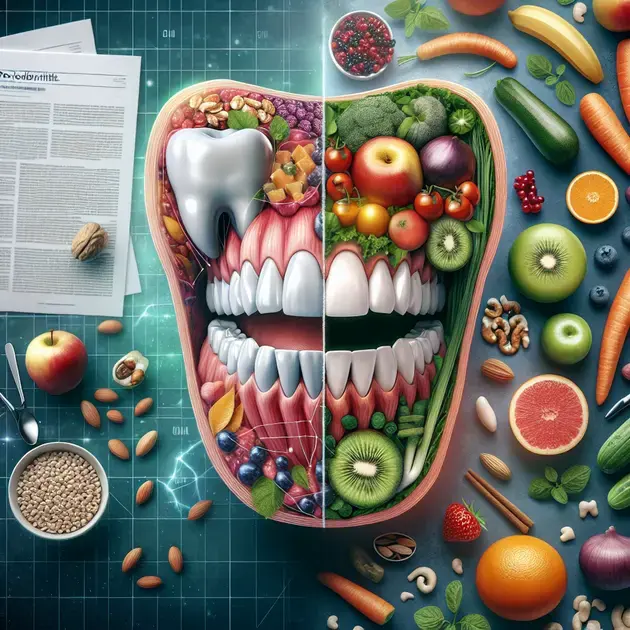Are you searching for effective medication for periodontitis treatment? Look no further! In recent years, there have been significant advancements in the development of medications specifically designed to combat periodontitis, offering patients more options for managing this common oral health condition.
From antibiotics to antimicrobial mouthwashes, there are various treatment options available to help address periodontitis. Choosing the right medication, in consultation with your dentist or periodontist, is crucial for effectively managing and treating this condition to maintain optimal oral health.

Choosing the Right Medication for Periodontitis
When it comes to choosing the right medication for periodontitis, it is essential to consult with your dentist or periodontist. They will evaluate the severity of your condition and recommend the most suitable treatment plan. In most cases, antibiotics are prescribed to help eliminate the bacteria causing the infection. One popular antibiotic used for periodontitis is doxycycline, which can be taken orally or applied directly to the affected areas.
Another medication that is commonly used for periodontitis is chlorhexidine mouthwash. This antimicrobial mouth rinse helps reduce plaque and gingivitis, which are common symptoms of periodontal disease. It is important to follow your dentist’s instructions on how and when to use this mouthwash to achieve the best results.
In addition to antibiotics and mouthwash, your dentist may also recommend non-steroidal anti-inflammatory drugs (NSAIDs) to help reduce inflammation and pain associated with periodontitis. These medications can be taken orally or applied topically to the gums for targeted relief. Over-the-counter pain relievers such as ibuprofen may also be recommended.
It is crucial to follow your dentist’s recommendations closely when taking medication for periodontitis. Be sure to inform them of any allergies or existing medical conditions you have before starting any new medication. Remember to attend regular dental check-ups to monitor your progress and make any necessary adjustments to your treatment plan.
Overall, choosing the right medication for periodontitis requires a personalized approach based on your individual needs and the advice of your dental professionals. By following their guidance and staying consistent with your treatment regimen, you can effectively manage and improve your periodontal health.
Latest Advancements in Periodontitis Treatment Medication
The field of periodontitis treatment medication is continuously evolving, with researchers and pharmaceutical companies developing new and innovative therapies to combat this common dental condition. One of the latest advancements in periodontitis treatment is the use of probiotics to promote a healthy balance of oral bacteria.
Probiotic supplements containing beneficial strains of bacteria have shown promising results in reducing inflammation and improving gum health in individuals with periodontitis. These supplements can be found in various forms, including capsules, lozenges, and even certain types of yogurt. Consult with your dentist or healthcare provider to determine if probiotics are a suitable addition to your treatment plan.
In addition to probiotics, researchers are exploring the potential of stem cell therapy in treating periodontitis. Stem cells have the unique ability to regenerate damaged tissues and promote healing in the gums and bone surrounding the teeth. Clinical trials are currently underway to assess the safety and efficacy of this cutting-edge treatment approach.
Another promising advancement in periodontitis treatment medication is the use of nanotechnology to deliver antimicrobial agents directly to periodontal pockets. These targeted drug delivery systems can more effectively combat the bacteria responsible for the infection while minimizing side effects on healthy tissues.
Stay informed about the latest advancements in periodontitis treatment medication by following reputable dental journals and attending conferences or seminars on oral health. Your dentist can also provide valuable insights and recommendations on incorporating new therapies into your treatment plan for better outcomes.
Consulting with Your Dentist for Effective Treatment
Effective treatment for periodontitis begins with consulting your dentist or periodontist for a comprehensive evaluation of your oral health. During this consultation, your dental professional will assess the extent of gum disease, including measuring gum pockets, examining X-rays, and evaluating any signs of infection or inflammation.
Based on their findings, your dentist will recommend a personalized treatment plan that may include a combination of professional cleanings, scaling and root planing, and antibiotic therapy. They will also provide guidance on proper oral hygiene practices, such as daily brushing and flossing, to prevent the progression of periodontitis.
In some cases, more advanced treatments like laser therapy or surgical procedures may be necessary to effectively treat periodontitis. Your dentist will discuss these options with you and address any concerns or questions you may have about the recommended treatment approach.
It is important to maintain open communication with your dentist throughout the treatment process and attend regular follow-up appointments to monitor your progress. Your dentist may make adjustments to your treatment plan as needed to ensure optimal results and long-term oral health.
By consulting with your dentist for effective treatment, you can take proactive steps to manage and improve your periodontal health, ultimately preserving the health and function of your teeth and gums.

**Exploring the Role of Nutrition in Managing Periodontitis**
Nutrition and Periodontitis
Nutrition plays a crucial role in managing periodontitis. A diet rich in essential nutrients such as vitamins (particularly C and D), minerals (like calcium and magnesium), and antioxidants can help strengthen the immune system and support overall gum health. Consuming foods high in sugar and unhealthy fats, on the other hand, can contribute to inflammation and exacerbate periodontal issues. By focusing on a balanced diet that includes plenty of fruits, vegetables, lean proteins, and whole grains, individuals can potentially reduce the severity of their periodontitis symptoms.
Impact of Vitamin C
Vitamin C is known for its anti-inflammatory properties and its ability to promote collagen production. Studies have shown that individuals with periodontitis often have lower levels of vitamin C, which can compromise their gum health. Incorporating vitamin C-rich foods like oranges, strawberries, and bell peppers into the diet can help support gum tissue healing and reduce inflammation in the gums.
Role of Omega-3 Fatty Acids
Omega-3 fatty acids are essential for overall health, including gum health. These healthy fats have anti-inflammatory effects and may help reduce gum swelling and tenderness associated with periodontitis. Foods rich in omega-3s, such as fatty fish (salmon, mackerel), chia seeds, and walnuts, can be beneficial for individuals looking to manage their periodontal condition through nutrition.
Importance of Hydration
Proper hydration is also key in managing periodontitis. Water helps flush out bacteria and food particles from the mouth, reducing the risk of plaque buildup and gum disease. Individuals with periodontitis should aim to drink an adequate amount of water throughout the day to support oral health and prevent further complications.
Overall Dietary Recommendations
In addition to specific nutrients, a balanced and varied diet is essential for managing periodontitis. Avoiding excessive consumption of sugary and processed foods, limiting alcohol and caffeine intake, and maintaining good oral hygiene practices can all contribute to better gum health. Consulting with a healthcare provider or nutritionist for personalized dietary recommendations can further enhance the management of periodontitis through nutrition.
Conclusion
In conclusion, nutrition plays a vital role in managing periodontitis by providing essential nutrients that support overall gum health and strengthen the immune system. A balanced diet rich in vitamins (such as C and D), minerals (including calcium and magnesium), and antioxidants can help mitigate the severity of periodontal symptoms. Conversely, consuming sugary and unhealthy fatty foods can exacerbate inflammation and worsen periodontal issues. By focusing on a diet comprising fruits, vegetables, lean proteins, and whole grains, individuals can potentially alleviate their periodontitis symptoms.
Furthermore
Vitamin C, known for its anti-inflammatory properties, and its role in collagen production, is crucial for gum tissue healing. Individuals with periodontitis often exhibit lower vitamin C levels, which can compromise gum health. Including foods rich in vitamin C like oranges, strawberries, and bell peppers can aid in reducing gum inflammation. Omega-3 fatty acids, important for overall health, have anti-inflammatory effects that may help reduce gum swelling and tenderness associated with periodontitis. Consuming sources of omega-3s such as salmon, mackerel, chia seeds, and walnuts can benefit those managing periodontal conditions through nutrition.
Lastly
Proper hydration is key in managing periodontitis, as water assists in flushing out harmful bacteria and food particles from the mouth, reducing the risk of plaque buildup and gum disease. Individuals with periodontitis should ensure adequate water intake throughout the day to support oral health and prevent complications. Alongside specific nutrients, a varied and balanced diet is essential for managing periodontitis. Avoiding excessive sugary and processed foods, moderating alcohol and caffeine consumption, and maintaining good oral hygiene practices all contribute to improved gum health. Consulting with healthcare providers or nutritionists for personalized dietary recommendations can further enhance periodontitis management through nutrition.



